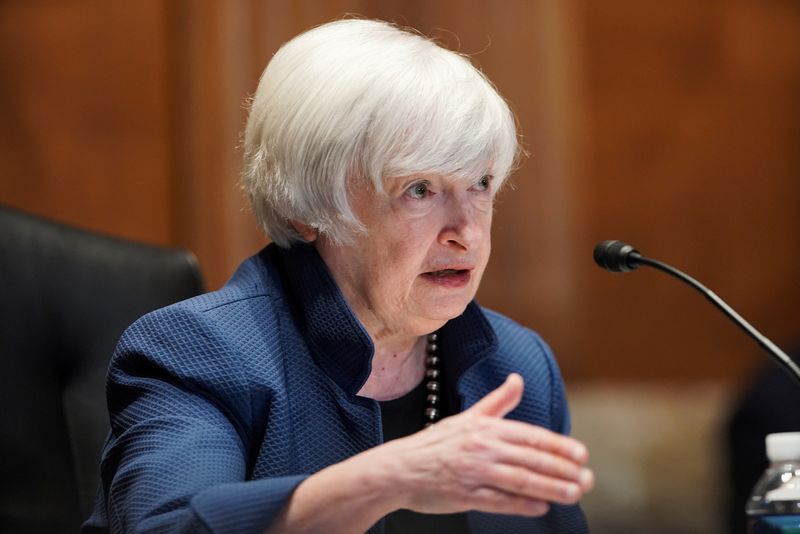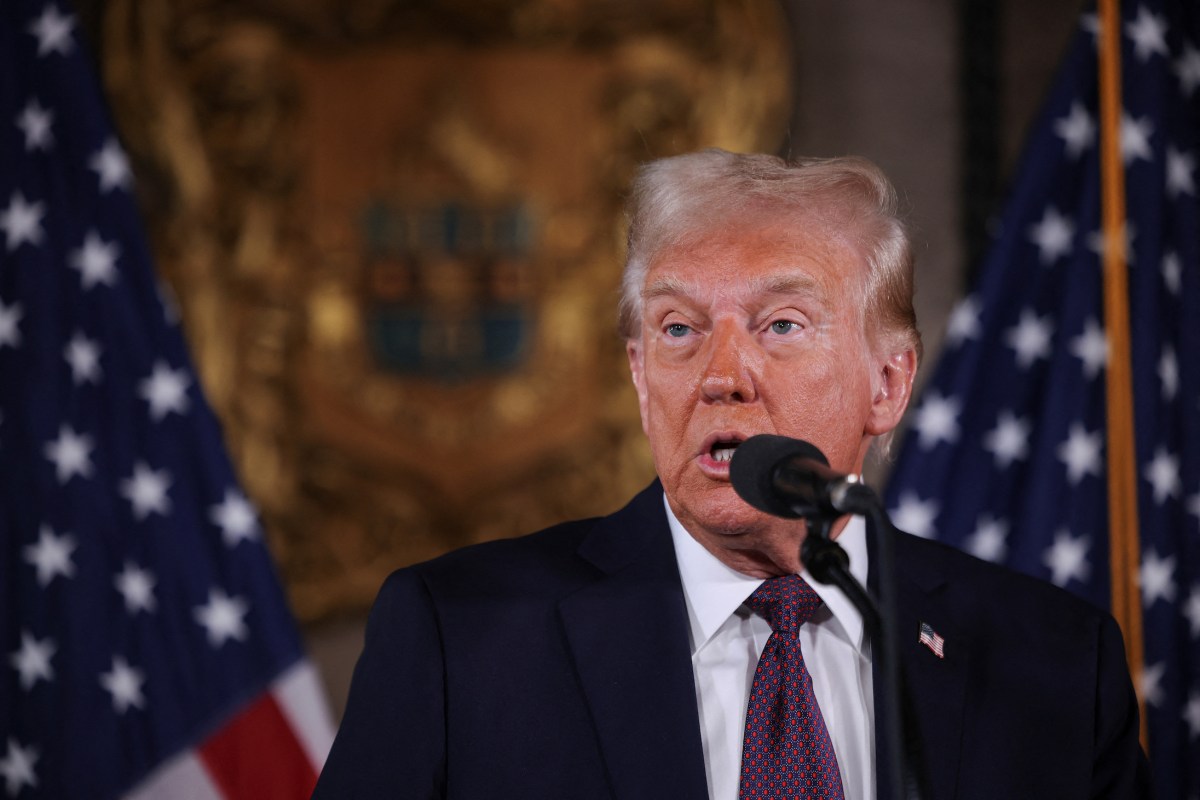CHICAGO (Reuters) -U.S. Treasury Secretary Janet Yellen travels to Chicago on Wednesday to amplify President Joe Biden’s State of the Union messages on punishing Russia for its invasion of Ukraine and advance his economic agenda, including investments in child care, education and clean energy.
The brief trip comes after Yellen spent several intensive days working with U.S. allies on crippling sanctions and asset freezes against Russia’s central bank, major financial institutions, Russian President Vladimir Putin and the wealthy elites close to him, denying them access to the international financial system.
“We expect these efforts to have a debilitating impact on Russia’s economy and hamstring the Russian government’s ability to fund its invasion,” Yellen said after a call on Tuesday with G7 counterparts and Ukrainian Finance Minister Sergii Marchenko.
Biden, in his speech on Tuesday night, closed U.S. airspace to Russian aircraft, adding: “When the history of this era is written, Putin’s war in Ukraine will have left Russia weaker and the rest of the world stronger.”
Yellen’s actions on sanctions will resonate in the Chicago area’s 54,000-strong Ukrainian-American community, one of the largest in the United States. She will meet with Illinois Governor JB Pritzker, who spoke on Sunday of his family’s origins in Kyiv at a rally in support of Ukraine.
At the University of Illinois-Chicago’s Innovation Center, Yellen also will tout big job gains and Biden’s efforts to persuade Congress to pass key parts of his domestic agenda, including new investments in manufacturing research and development.
While he spoke, Yellen tweeted: “I am optimistic about the U.S. economic recovery. President Biden’s policies will increase the productive capacity of our economy to boost long-term growth, protect the environment, and promote equity.”
Biden dropped the term “Build Back Better” from his speech, the name for a sweeping $2 trillion spending package that stalled at the end of last year amid opposition from moderate Democrats, premiering the new phase “Build a Better America.”
He emphasized his focus on key elements of the previous proposal, including universal preschool, cutting child care costs for families, and clean energy tax breaks, paid for by tax hikes on the wealthy and new, 15% minimum corporate taxes.
(Reporting by David Lawder; additional reporting by Andrea Shalal; editing by Jonathan Oatis)























